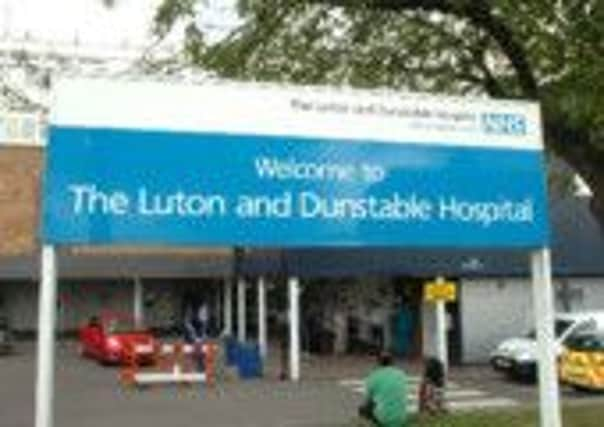Babies poisoned by contaminated food at Luton & Dunstable Hospital


The newborns were two of 15 babies to have been infected across the country, one child at London’s Guy’s and St Thomas’s Hospital has died from the poisoning.
Luton & Dunstable Hospital has withdrawn the parenteral nutrition liquid, food that is given directly into the blood stream by an intravenous tube.
Advertisement
Hide AdAdvertisement
Hide AdThe two babies have been given antibiotic treatment after the L&D was notified of other cases by Health Protection England.
Luton News can reveal that the L&D infections came to light on Tuesday, with the infants said to be “responding well” to treatment.
Dr Jennifer Birch, the L&D’s clinical director for neonatal intensive care (NICU), said: “We are informing all of the parents whose babies are being care for in NICU about this situation.
“We are reassuring them that the infection does not spread from baby to baby.
Advertisement
Hide AdAdvertisement
Hide Ad“The two babies who have been infected are being treated with antibiotics and we are using and alternative type of parenteral nutrition.”
HPE continues to advise the hospital on which action to take.
The blood poisoning was caused by a bacterium known as Bacillus cereus, which is found widely in the environment in dust, soil and vegetation.
A Public Health England statement read: “The affected babies were in neonatal intensive care units at a small number of hospitals in England.
Advertisement
Hide AdAdvertisement
Hide Ad“Many of the babies were premature and very vulnerable and one baby has sadly died but the others are responding to antibiotic treatment.”
Officials have “strongly linked” the batch to specialist company ITH Pharma.
The firm’s managing director, Karen Hamling, said: “ITH Pharma is very saddened to hear about the death of a baby in hospital, and that 14 others are ill with septicaemia.
“ITH Pharma is a specialist manufacturer of parenteral nutrition, which is given to babies in neo-natal intensive care units. “The products in question, which are no longer in circulation, are made to order for individual patients on a daily basis, in response to bespoke orders from hospitals.
“We are co-operating fully with the MHRA in the investigation, and are doing everything we can to help them establish the facts in this case as quickly as possible.”